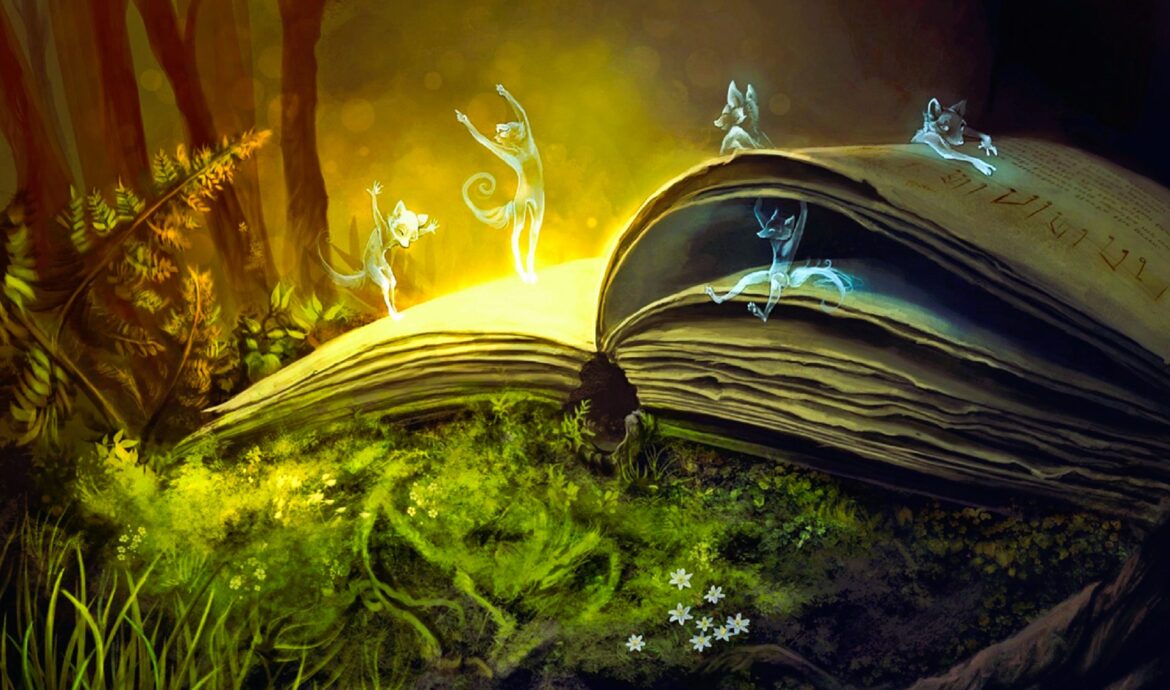
Fantasy vs. Sci-Fi: Which Book-Inspired Games Reign Supreme?
When it comes to video games inspired by literature, two dominant genres stand out: fantasy and science fiction. These genres have given us some of the most iconic and beloved games, each drawing from rich narratives, imaginative worlds, and profound themes found in their literary counterparts. But which genre truly reigns supreme in the realm of book-inspired gaming? Let’s dive into a detailed comparison of fantasy and sci-fi book-inspired games to explore their appeal, mechanics, and impact.
The World-Building Showdown: Fantasy’s Rich Tapestries vs. Sci-Fi’s Boundless Frontiers
Fantasy’s Immersive Realms
Fantasy games often draw from the deep lore and world-building of their literary origins, creating rich, immersive environments. Titles like The Witcher 3: Wild Hunt, based on Andrzej Sapkowski’s novels, transport players to a sprawling, morally complex world filled with magic, mythical creatures, and political intrigue.
Similarly, Middle-earth: Shadow of Mordor brings J.R.R. Tolkien’s iconic Middle-earth to life. With its groundbreaking Nemesis System, the game lets players forge unique rivalries and alliances, all while exploring a world steeped in Tolkien’s legendary lore.
Fantasy’s strength lies in its ability to build dreamlike worlds where players can lose themselves in epic quests and heroic journeys.
Sci-Fi’s Vision of the Future
On the other hand, science fiction games draw from speculative narratives, presenting visions of the future shaped by advanced technology, space exploration, and societal evolution. Mass Effect, inspired by the works of Arthur C. Clarke and Isaac Asimov, offers players a galaxy-spanning adventure where decisions shape the fate of civilizations.
Another standout is Cyberpunk 2077, drawing from William Gibson’s cyberpunk literature and the tabletop RPG Cyberpunk 2020. The game immerses players in a dystopian world where technology and humanity collide, offering a gritty, futuristic take on classic sci-fi themes.
Sci-fi games excel in exploring philosophical questions about humanity, morality, and the consequences of technological advancement. Read about what books will be next in the article called The Future of Game Adaptations.
Gameplay Depth: Magic Systems vs. Technological Mastery
Fantasy’s Magic and Myth
Fantasy games often hinge on magic systems and mythical creatures that challenge players to strategize and adapt. In Divinity: Original Sin 2, players experiment with elemental magic, crafting spells that interact with the environment for tactical advantage.
These games also lean heavily on traditional RPG mechanics, allowing players to customize their characters as wizards, warriors, or rogues. The sense of personal growth and discovery, often tied to heroic archetypes, is a hallmark of fantasy gameplay.
Sci-Fi’s Technological Arsenal
In contrast, sci-fi games focus on futuristic weapons, robotics, and advanced systems. No Man’s Sky exemplifies this with its procedurally generated universe, allowing players to explore over 18 quintillion planets while mastering starships, alien technologies, and resource management.
The emphasis on innovation and exploration aligns with the forward-thinking spirit of science fiction. Whether piloting spaceships or hacking into advanced systems, sci-fi games give players a sense of progress and intellectual challenge.
Narrative Strength: Epic Quests vs. Thought-Provoking Tales

Fantasy’s Heroic Journeys
Fantasy games often draw from archetypal narratives involving heroes, villains, and the eternal battle between good and evil. Dragon Age: Origins is a prime example, offering players a narrative deeply rooted in choice and consequence, with a strong emphasis on relationships and world-saving quests.
The genre’s reliance on timeless themes like redemption, love, and honor creates emotionally resonant stories that keep players invested for hours.
Sci-Fi’s Philosophical Musings
Science fiction games, in contrast, frequently tackle existential questions. Deus Ex: Human Revolution explores the ethics of human augmentation, asking players to consider the moral implications of blending humanity with technology.
These narratives push players to think critically about societal structures, the future of humanity, and the meaning of existence. Sci-fi’s thought-provoking nature often sets it apart as a genre for intellectual engagement.
Cultural Impact and Legacy
Both genres have left indelible marks on gaming and popular culture. Fantasy games like The Elder Scrolls V: Skyrim have achieved mainstream recognition, becoming cultural phenomena that continue to inspire mods, memes, and community events.
Similarly, sci-fi games like Halo have defined entire gaming generations, influencing how space operas are portrayed in interactive media. The debate over which genre has had a greater impact ultimately depends on personal preference, as both continue to evolve and thrive.
Fantasy or Sci-Fi: The Final Verdict
Choosing between fantasy and sci-fi book-inspired games ultimately comes down to individual taste. Fantasy games offer immersive, magical worlds filled with epic quests and emotional depth. Sci-fi games, on the other hand, challenge players with futuristic visions, intellectual themes, and innovative mechanics.
Why not enjoy the best of both worlds? Whether you prefer slaying dragons in The Witcher or exploring alien civilizations in Mass Effect, these games celebrate the enduring power of literature to inspire unforgettable adventures.
For more insights into the worlds of gaming, visit Fandom.

